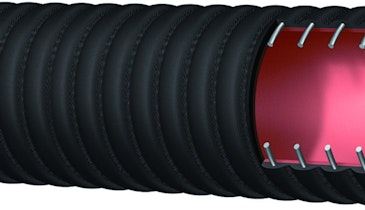While death and taxes are inevitable, death doesn’t worsen every time Congress meets. The constant push-pull of special interests and partisan politics left us with an income tax system that is convoluted and overly complex.
The system has one saving grace: It’s semi-voluntary. For example, everyone knows that if you own a home, you can deduct property taxes and mortgage interest. But you are not required to. You could file form 1040A or 1040EZ, forego deductions and “volunteer” to pay more taxes.
There are more opportunities in the IRC (Internal Revenue Code) than the common deductions people confine themselves to. These opportunities are not well known and are often ignored even by tax planners, accountants and attorneys. By ignoring them, you will have “volunteered” to pay more taxes.
There are a number of highly effective strategies that result in paying less income tax legally without triggering audits. These strategies enhance retirement, estate and investment planning.
WATCH OUT FOR AUDIT TRIGGERS
Flexible or not, the strongest person’s knees may turn to Jell-O when the dreaded IRS audit notice lands in his or her mailbox.
There are differing degrees and levels of audits, yet they all have one thing in common: They are triggered by what people put in their tax returns. The IRS has something called discriminate function programmed into their computers. When the numbers on a return fall under certain criteria, the return is flagged for manual review.
An agent will determine if that return should be audited. Although the specific criteria are secret, we know that certain things will trigger audits: ratios and unusually high deductions, and certain tax shelters and strategies. You should claim these deductions if you have incurred them, but retain documented proof such as receipts and canceled checks.
Common triggers for an IRS audit include:
• Earned Income Credit (EIC). The EIC is a cash credit for low-income workers with dependents. In 1997, 25.6 percent of EIC were erroneous or fraudulent. Congress meant well, but the rules were so complex and changed so much that low-income persons couldn’t claim EIC without professional help they often cannot afford. Be careful with this one!
• Round Numbers. Deductions rounded off to the nearest hundred or thousand will lead the IRS to think the taxpayer is guessing rather than determining from accurate records.
• Answer all questions and boxes. Leaving a box blank doesn’t translate to “no.” Questions on various returns involving trusts, partnerships, foreign accounts, accounting methods, etc. should be answered. Don’t leave them blank.
• Categorize deductions. Large deductions headed “Miscellaneous” or with vague wording may lead the IRS to decide you can’t prove it.
THE RIGHT TAX PREPARER
You are responsible for your return. If there are errors triggering an examination, you are the one who will be audited. When the IRS suspects tax preparers of incompetence or misconduct, it can force them to produce lists of clients who may face examination.
A few years ago this happened to a mass-preparation firm in New York. Preparers would ask the client how much refund they wanted, and then would fraudulently increase the charitable deduction to get the refund. IRS computers picked up the pattern, the firm closed and hundreds of their clients were audited.
Here are some guidelines to use when choosing a preparer:
• Always use preparers with certifications. EAs (Enrolled Agents), CPAs and attorneys are the only ones authorized by the Treasury Department to represent clients before the IRS. There are many good preparers out there without certification, but how would you know which are good and which are not?
• Never accept a return without the preparer’s tax ID number and signature. This is required by law. If it is left blank or states “Self Prepared” there’s something wrong!
• Review your return. Are the figures on the return the ones you gave? Ask questions. Even the best preparers can make a mistake, especially during the pressures of a busy tax season.
• Talk to your accountant. Be sure you’re on the same page and ask about strategies. Be proactive. It will keep you out of trouble and save you money.
SEEK LEGAL DEDUCTIONS
There are plenty of tax savings in the system without resorting to illegal strategies that can come back to bite you. Stay away from tax evasion schemes such as foreign trusts, secret offshore bank accounts and other shady deals. Here are a few legitimate strategies you can implement now:
• Bundle deductions in a year you expect more taxable income. Pay the first property tax installment for next year in the current year. Pay your January State Estimated payment in December (deductible on Federal). If possible, arrange medical expenses such as dental and eyeglasses in that same year.
• Consider a tax credit program. A credit is a dollar-for-dollar reduction of your taxes. There are a number of credit programs backed by the government for social reasons. Not all may be right for you but anyone in a high tax bracket should consider them.
• Buy a house. Points paid on the mortgage, interest and property taxes are all deductible. If you rent, you don’t get to deduct anything. Your rent goes to pay those things and your landlord deducts them. This is the best deduction of all.
• Contribute to an IRA or maximize your 401(k) or 403(b) contributions. Since it comes off the top of your income, you will save 27.5 percent on federal taxes and a smaller amount on state taxes in the average brackets. You can’t spend it until you retire, but so what? You’re going to get older and need money in retirement; where will it come from if you don’t accumulate it?
AUDITS MAY RISE
In recent years IRS audits have dropped for staffing reasons, but are now increasing and average-to-higher income individuals have greater chances for audits in coming years. This is just a small sample of the savings possible with good planning. There’s not enough room to list them all, but they’re out there waiting for you … just like the IRS.





